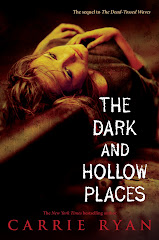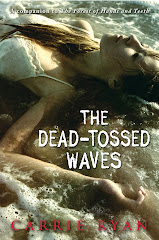Monday, May 08, 2006
Whose voice is it anyway?
Recently I posted a little about writing what you know and I promised more on this topic. As I mentioned in that post, my current WIP is based on some of my own life experiences. And I must admit, there are times that I feel as if this has stymied my creativity. These experiences are so ingrained in me that it's hard to twist them, to change and manipulate them.
Let me back up a bit. Actually, this book is based on two separate experiences - essentially two different jobs that I held that are quite contradictory (and the juxtaposition is part of the book). One of them I have no problem parodying at all. We'll call that Job A. In fact, I have such a terrible memory that I can barely remember the facts of that time and so am forced to make it all up. But the other experience or job is one that's hard to play off of - Job B. I find myself constantly referring to a journal I kept during that time and having a hard time veering from anything that didn't happen in my experience. I'm certainly less creative with those aspects of the story.
Tonight I wrote a scene that deals with Job B and in the end the writing felt a bit flat. It wasn't that it was BAD writing, it was just, sorta, there. It got the point across but not the voice. Suddenly I realized that this was the case with almost all of my Job B scenes. They're all written more like reporting rather than a character experiencing them.
I mentioned this to The Boy and together we realized that when I picture those scenes in my head I don't see them from my protagonist's point of view, but from my own. And since this WIP is written in first person it gets very easy to confuse the two. I've been writing Job B scenes in my own voice! Not good.
It's amazing how stubborn we can be about breaking apart an old memory and recrafting it for our own nefarious purposes. These memories are almost sacrosanct to me and it's been hard for me to scavenger them. But them's the brakes - if scavengering is what I gotta do then that's what I gotta do.
After struggling with a few of these scenes I have to admit that it was nice to have that "duh" moment. Now that I've realized this mix-up in voice it is so clear to me that this is what's been going on. I can't believe I missed it before! And here I thought that it was just hard for me to channel this protag's voice. That's not it at all! When I'm writing fiction it's actually quite easy to get the voice that I want. It's only when I impose my world on my characters that I lose it. What a relief this revelation is - this hopefully means that I can edit the consistency of voice back in!
The Boy says I should think of all of those scenes and then imagine how my protag will aproach them. I agree. At the same time I think I also have to reimagine those scenes differently - not feel the need to be quite so true to real life. This isn't a memoir, it's fiction.
How do you deal including your own experiences in your work? Do you feel your own voice trying to come through at all? Am I the only one who gets the two worlds and voices confused? And is it really a bad thing if you do?
Let me back up a bit. Actually, this book is based on two separate experiences - essentially two different jobs that I held that are quite contradictory (and the juxtaposition is part of the book). One of them I have no problem parodying at all. We'll call that Job A. In fact, I have such a terrible memory that I can barely remember the facts of that time and so am forced to make it all up. But the other experience or job is one that's hard to play off of - Job B. I find myself constantly referring to a journal I kept during that time and having a hard time veering from anything that didn't happen in my experience. I'm certainly less creative with those aspects of the story.
Tonight I wrote a scene that deals with Job B and in the end the writing felt a bit flat. It wasn't that it was BAD writing, it was just, sorta, there. It got the point across but not the voice. Suddenly I realized that this was the case with almost all of my Job B scenes. They're all written more like reporting rather than a character experiencing them.
I mentioned this to The Boy and together we realized that when I picture those scenes in my head I don't see them from my protagonist's point of view, but from my own. And since this WIP is written in first person it gets very easy to confuse the two. I've been writing Job B scenes in my own voice! Not good.
It's amazing how stubborn we can be about breaking apart an old memory and recrafting it for our own nefarious purposes. These memories are almost sacrosanct to me and it's been hard for me to scavenger them. But them's the brakes - if scavengering is what I gotta do then that's what I gotta do.
After struggling with a few of these scenes I have to admit that it was nice to have that "duh" moment. Now that I've realized this mix-up in voice it is so clear to me that this is what's been going on. I can't believe I missed it before! And here I thought that it was just hard for me to channel this protag's voice. That's not it at all! When I'm writing fiction it's actually quite easy to get the voice that I want. It's only when I impose my world on my characters that I lose it. What a relief this revelation is - this hopefully means that I can edit the consistency of voice back in!
The Boy says I should think of all of those scenes and then imagine how my protag will aproach them. I agree. At the same time I think I also have to reimagine those scenes differently - not feel the need to be quite so true to real life. This isn't a memoir, it's fiction.
How do you deal including your own experiences in your work? Do you feel your own voice trying to come through at all? Am I the only one who gets the two worlds and voices confused? And is it really a bad thing if you do?
Subscribe to:
Post Comments (Atom)
















3 comments:
This is an interesting topic, Carrie. I am also using a lot of my own experiences in my current WIP and I do sometimes find it difficult to differ from reality. What I ended up doing (in the 5th draft, lol) was change the events to be completely different from my experiences and draw only on the emotional aspects of my experience. That has worked amazingly well! I have a good emotional impact in my story and no trouble with the creativity aspect of it.
There is one question I have, though. If you aren't writing in your own voice, who's are you writing in? lol When you said that you realized you were writing in your voice, I thought to myself, but she should be. That's what makes you different from other writers. But, maybe you meant something else. I try really hard to find my voice and stay in that throughout my writing.
Good point Bren - I guess I thought I made perfect sense with what I was saying :) What I meant was that I wasn't writing in my character's voice - in the way that she would think and react. I was writing the way that *I* would think and react. And for me there's a difference between how I would feel in a certain situation and how my character would feel.
I think you're exactly right when you say you have to just keep the emotion and come up with your own events. I think that's what I'll have to do. But there are parts that are so technical about the job that I'm afraid of getting it wrong... I guess we'll see!
Hi, Carrie--
I'm struggling with plot, too. I went to a conference for mystery writers this spring where Hallie Ephron (Norah's sister) talked about plots--I think some of her ideas would work for other things besides mysteries. She suggested thinking of the plot in terms of "acts," like little sections that gradually build up to the final ending, and giving each of these parts its own high point or climax of action. Other people have suggested that "rule of three" in building suspense, too. Don't know if that helps at all.
One thing that really helps me see if my plot is working or not is to write the synopsis first, and then revise it as I get into the draft.
Post a Comment